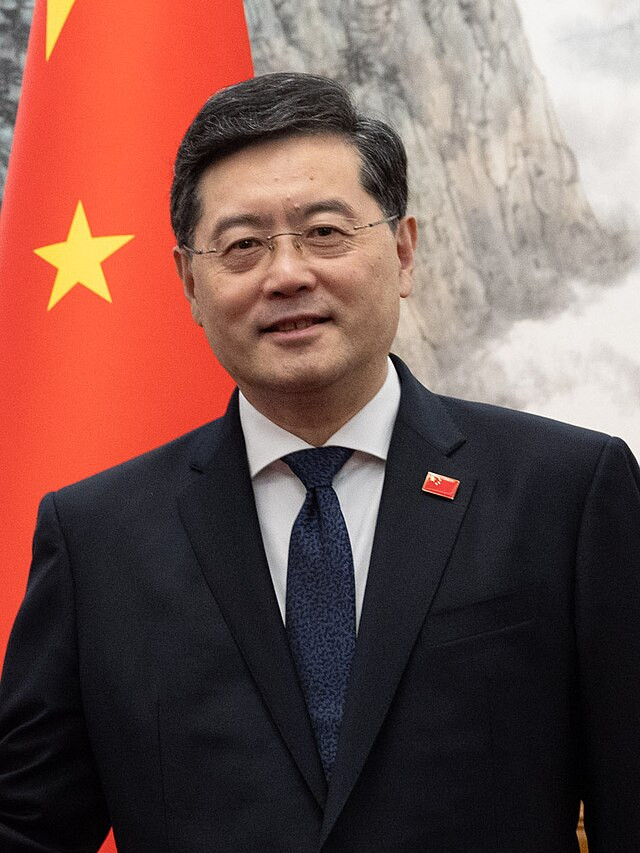The enigmatic departure of China's former Foreign Minister Qin Gang from the public eye, followed by his resignation from China's national legislature, has intensified speculation about the inner workings and political dynamics within the Chinese Communist Party (CCP). Qin, who had ascended to the role of foreign minister in January 2023, vanished from public appearances in June and was officially removed from his post as a state councilor in October. This development has puzzled observers, given Qin's rapid rise and his perceived close ties with Chinese President Xi Jinping, often referred to as Xi's "most loyal servant."
The reasons behind Qin's dismissal and his subsequent resignation from the National People's Congress have not been officially disclosed by Beijing, leaving room for speculation and analysis. Qin's case is particularly intriguing against the backdrop of Xi Jinping's sweeping campaign to ensure loyalty and security within the party and government ranks, which has seen a tightening grip on power and an opaque political environment that challenges even seasoned China experts.
One theory circulating in international media involves Qin's alleged personal entanglements, notably a reported affair with former Chinese state media journalist Fu Xiaotian. Reports suggest that Qin and Fu, who has also disappeared from public visibility, had a child together, sparking rumors about potential breaches of party discipline or security. Adding to the intrigue, a former U.S. official cited by David Ignatius of the Washington Post suggested that Fu had connections with British intelligence, further complicating the narrative around Qin's downfall.
This personal scandal, if proven true, would not only mark a significant breach of the CCP's stringent moral and disciplinary codes but could also indicate vulnerabilities within China's foreign diplomatic corps. In November, a senior official from the CCP's Central Commission for Discipline Inspection hinted at the risks faced by Chinese diplomats from "Western hostile forces," suggesting that Qin's case might be part of a broader concern about the integrity and loyalty of China's international representatives.
Qin's predecessor, Wang Yi, has since reassumed the role of foreign minister, stepping back into a position he held before Qin's brief tenure. This leadership shuffle occurs as China confronts a myriad of domestic and international challenges, including a slowing economy weighed down by a property crisis, high youth unemployment, and substantial local government debt. The upcoming session of the National People's Congress, China's ceremonial parliament, is anticipated to address these pressing economic issues, amidst the broader context of China's strategic competition with the United States and its allies.
The opaque nature of CCP politics, compounded by President Xi's consolidation of power, makes the implications of Qin's ouster difficult to decipher. However, it underscores the precariousness of high-level political positions in Beijing and the ever-present scrutiny on officials' personal and professional conduct. As China navigates its complex political and economic landscape, the saga of Qin Gang serves as a reminder of the intricate balance between personal loyalty, political stability, and national security within the highest echelons of Chinese power.






